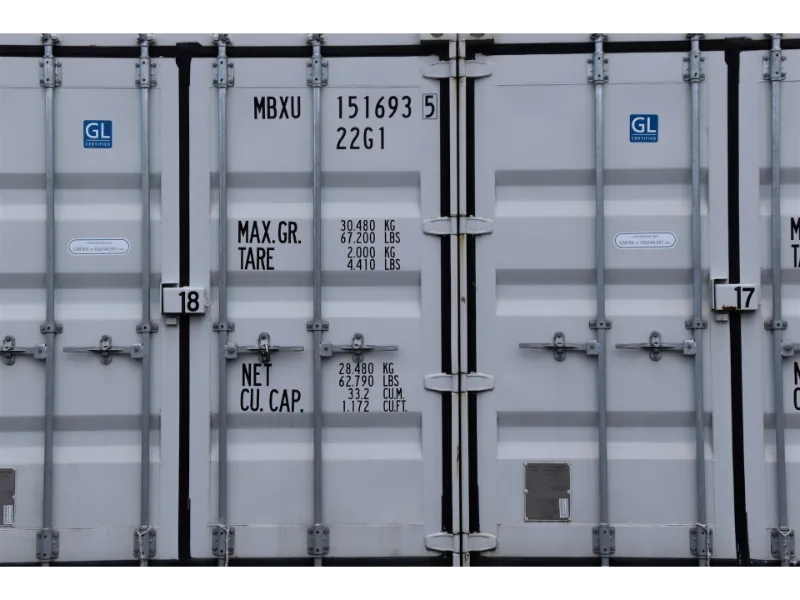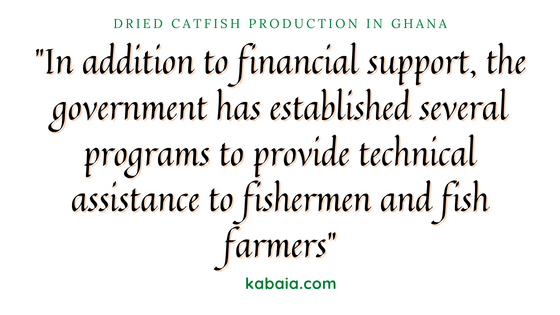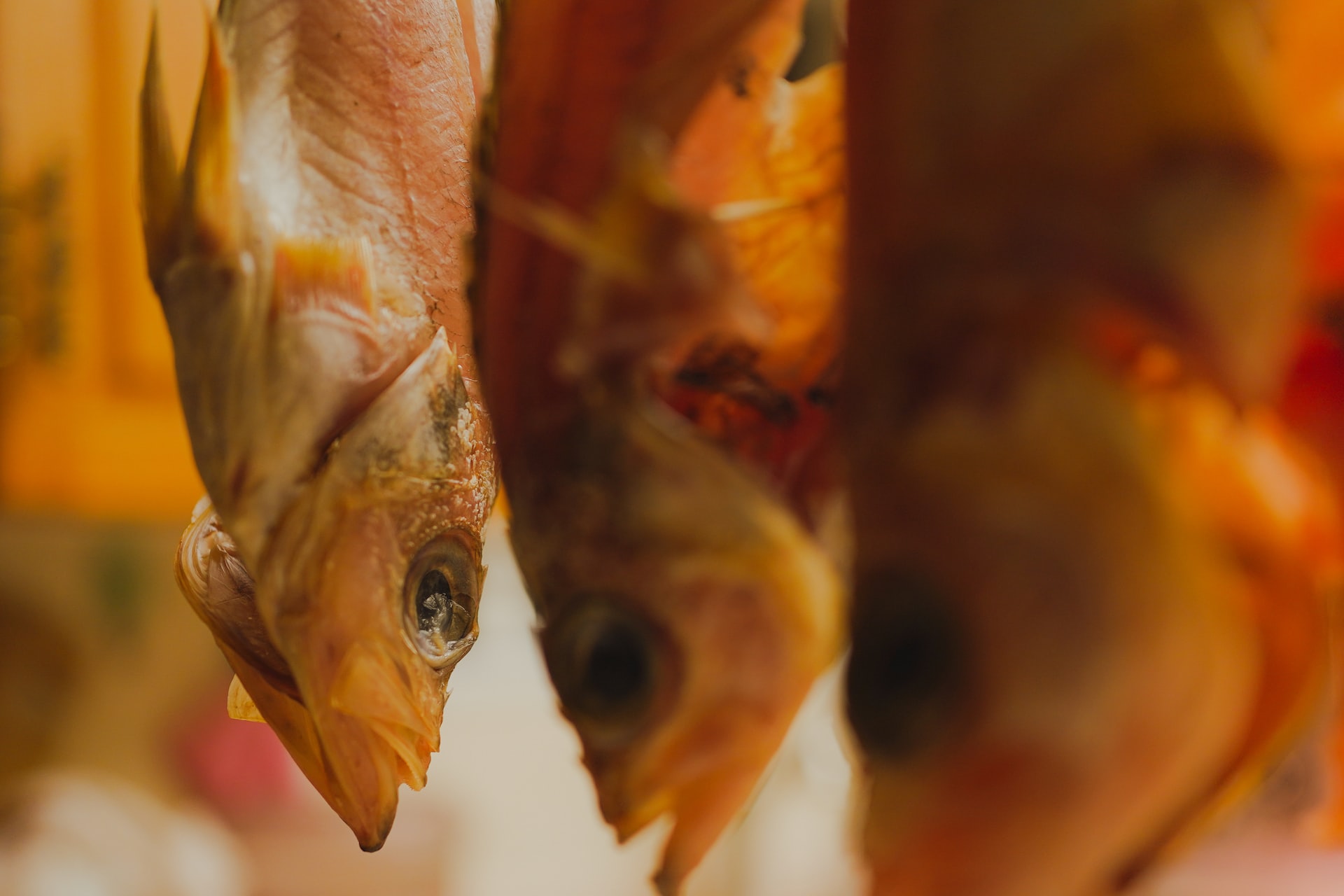Dried catfish production in Ghana is thriving, particularly in the coastal areas where catfish are abundant. This industry is not only a food source for the local population but also provides employment opportunities for many people in the country.
In this article, we will briefly explore the process of dried catfish production in Ghana, its benefits, and the challenges faced by the industry.
The Production Process Of Dried Catfish In Ghana
The production process is relatively simple and almost the same as in other West African countries, such as Nigeria or Cameroon.
The catfish are caught, cleaned, and gutted. Then soaked in brine and dried using traditional methods, including natural energy sources such as sunlight and air.
The drying process can take up to 5 days, depending on the weather conditions. During the drying process, the catfish lose their moisture content, which helps to preserve them for longer periods without refrigeration. Once the drying process is complete, the dried catfish are sorted, packaged, and ready for sale.
You may also like: 5 Steps to Preserve, Process and Pack Smoked Catfish and Here are Some Rare Smoked Catfish Uses and Benefits
Dried Catfish Production In Ghana –Stats & Facts
According to the Food and Agriculture Organization (FAO), Ghana is the second-largest catfish producer in Africa after Nigeria. Catfish production in Ghana has grown significantly in recent years, with an estimated production of 20,000 metric tonnes in 2019.
Dried catfish is a major export commodity for Ghana, with an estimated export value of $11.4 million in 2019. Nigeria is the largest importer of Ghanaian dried catfish, accounting for over 80% of total exports. Other countries that import Ghanaian dried catfish include Togo, Benin, and Ivory Coast.


Benefits Of Dried Catfish Production In Ghana
Dried catfish production has several benefits for the Ghanaian economy and its people.
- Firstly, it is an important food source for the local population. Dried catfish is a popular ingredient in Ghanaian cuisine and is used in various dishes, including soups, stews, and sauces.
- Secondly, dried catfish production provides employment opportunities for many people. It plays an important role in social and economic life in Ghana. The industry is mostly carried out by small-scale farmers and fishermen who use traditional production methods. Many families depend on it as their sole source of income. This has led to the development of tight-knit communities where individuals work together to catch, process, and sell dried catfish. These farmers and fishermen can earn a decent living from their work, which helps to support their families and communities.
- Thirdly, dried catfish production is an important item of trade. It is a major source of income for Ghana’s capital economy. The industry generates revenue through exports to other countries, such as Nigeria and Cameroon, where dried catfish is a popular food item.
You may also like: Top 5 Health Benefits of Smoked Catfish
Challenges Faced By The Dried Catfish Industry In Ghana
Despite its many benefits, the dried catfish industry in Ghana faces several challenges.
- One of the major challenges is the lack of modern equipment and facilities for drying and processing the catfish. Most farmers and fishermen still use traditional production methods, which can be time-consuming and labour-intensive. This has limited their ability to meet the growing demand for dried catfish locally and internationally.
- Another challenge the industry faces is the lack of access to financing and technical support. Many small-scale farmers and fishermen struggle to access loans and other forms of financing that could help them to expand their businesses. They also lack access to technical support that could help them to improve their production processes and increase their yields.
- Furthermore, the industry faces challenges from environmental factors such as climate change and pollution. Climate change has led to changes in weather patterns, which can affect the drying process of the catfish. Pollution from industrial activities and human waste can also impact the quality of the fish and limit the areas where they can be caught.


How is the government of Ghana supporting the dried catfish industry?
The Ghanaian government has recognized the challenges faced by the catfish drying industry and has taken steps to support the industry and address these challenges.
One way the government is helping the fish-drying industry is by providing financial assistance through loans and subsidies. The government has established several schemes to support small-scale fishermen and fish farmers, including the Fisheries Credit Support Scheme and The West Africa Regional Fisheries Programme (WARFP).
Schemes like these provide financial support to help fishermen and fish farmers invest in modern equipment and facilities, which can improve their productivity and profitability.
The government is also working to address environmental challenges faced by the catfish drying industry. Climate change has significantly impacted the availability and quality of catfish in Ghanaian waters, which has affected the fishing industry as a whole. To address this, the government has developed the National Climate Change Policy, which seeks to mitigate the impact of climate change and promote sustainable development in the fishing industry.
In addition to financial support, the government has established several programs to provide technical assistance to fishermen and fish farmers.
For example, the Ministry of Fisheries and Aquaculture Development has established the Aquaculture for Food and Jobs Program, which provides training and technical assistance to fish farmers to improve their production methods and yields.
Furthermore, the government has established regulatory frameworks to ensure the safety and quality of dried catfish products.
The Ghana Standards Authority (GSA) has established guidelines and standards for producing, processing, and storing dried catfish products. These standards ensure that dried catfish products meet certain quality standards and are safe for consumption.
The Ghanaian government has recognized the challenges faced by the catfish drying industry and has taken steps to support the industry and address these challenges through financial and technical assistance, along with providing regulatory frameworks.


See also: How to Start a seafood Business And Make It A Success
Conclusion
To conclude, dried catfish production in Ghana has significant potential for growth and development. However, investing in research and development can still fill a huge gap to help identify new markets and products for dried catfish. Some of this research may be helping the producers learn how to find smoked catfish buyers in Europe and other export markets.
This could include value-added products such as dried catfish filets and other ready-to-eat dried catfish food products, such as those sold by Kabaia.com.
Products like these can fetch higher prices in the export market, which in return can promote the growth and sustainability of the industry and the overall development of Ghana’s economy and the well-being of its people.
We love to hear from you!
Are you a dried catfish producer in Ghana?
What have been your experiences so far? What other challenges besides those listed here are you experiencing?
Feel free to use the comment box below and share your experience as a dried catfish producer in Ghana.





Thank you Kabaia food inc. for yet another educating mail today, like always I’ve learnt something new. I didn’t know that Ghana and Cameron are among the biggest exporters of dried catfish in Africa and that Ghana even import to Nigeria.
I look forward to seeing more of this email.